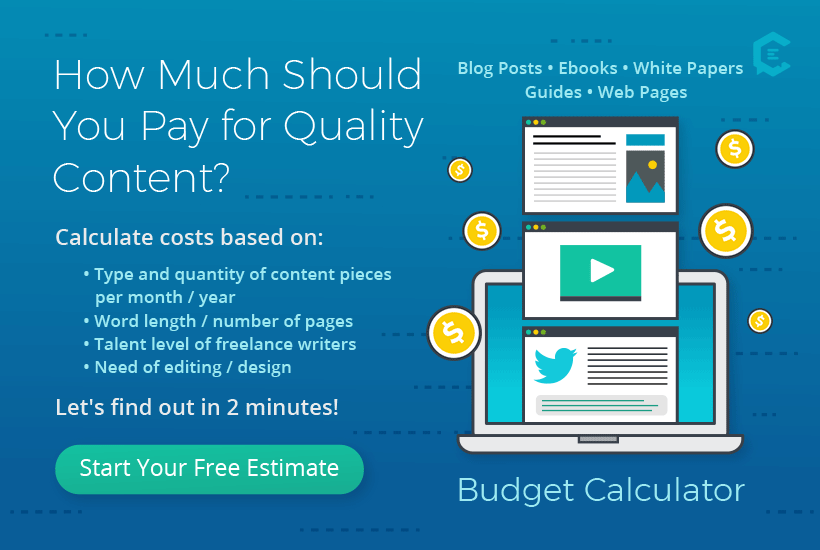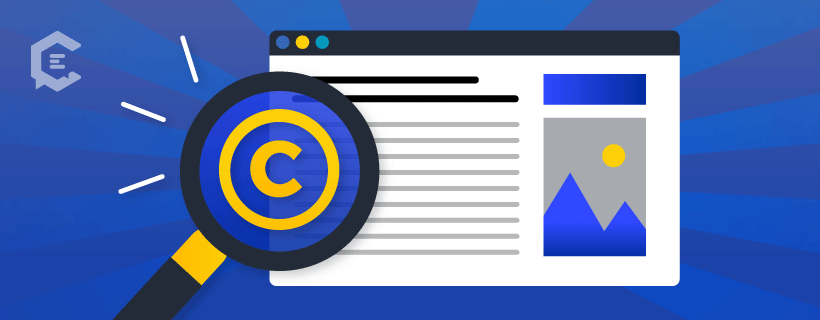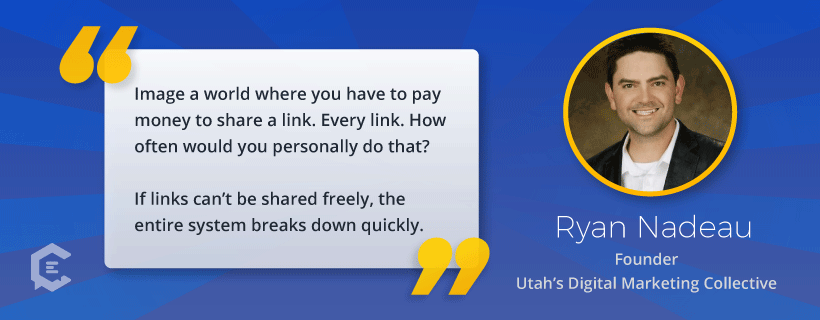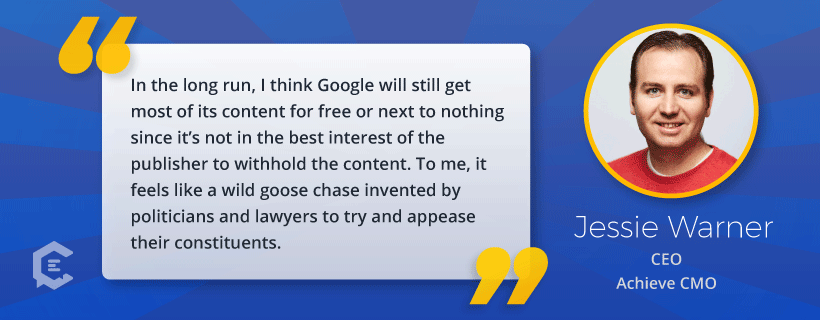On Mar. 26, 2019, the European Union passed legislation for its new Copyright Directive. Martech expert Ben Beck breaks down what the new law is all about, its potential impacts on digital marketing, and what it specifically might mean for SEO specialists and content marketers of today and tomorrow.
The digital, internet age that we have all come to rely on has become a driving source of opportunity and innovation that our ancestors could have never imagined.
New startup businesses, such as e-commerce, SaaS tech companies, and even independent content creators have capitalized on the various opportunities, striving to claim and maintain a small piece of the very large internet pie through the power of SEO and content marketing.
However, because the online market has become flooded and saturated with content, there has been little regulation. And although content has been consistently changing and evolving in the last decade, content still reigns as king as 2019 continues to unfold. However, that all might change with the European Union Copyright Directive.
What is the EU Copyright Directive?
The Copyright Directive has consisted of numerous updates to EU copyright rules. They were first set in force to protect the works of artists and scientists. However, it has been 18 years since these rules have been reviewed and ratified.
As a result, the European Parliament has been working on updating and revising the EU Copyright Directive to fit modern-day copyright rules in an effort to continue to protect consumers and content creators.
About the legislation
However, in an effort to continue to protect content owners, earlier this week the European Parliament passed several copyright laws that have sparked a great deal of controversy. The two articles that are particularly controversial are Article 11 and Article 13, which dictate:
- Article 11 requires permission and licensing fees when snippets of content are presented.
- Article 13 requires platforms like Google, YouTube, Facebook, Twitter, and others to monitor potential copyright infringement much more aggressively or otherwise face liability. These platforms and sites would be responsible for scanning content for potential violations prior to being uploaded, published, and shared.
On Feb. 27, 2019, the bill passed the first legislative group. The final bill, which still includes both Articles 11 and 13 (now called Article 17), was successfully passed into law on Tuesday of this week (Mar. 26, 2019).
The actual enforcement will go into action in two years after each country in the EU decides exactly how they want to enforce these two controversial articles.
What does this mean for digital marketing in general?
Many have described the new EU Copyright Directive rules as the “GDPR for copyright” and expect them to have a similar disruptive effect on the way internet companies create and share user-generated content. [GDPR stands for ‘General Data Protection Regulation’. Also see: Navigating GDPR in Your Content Marketing Efforts]
For example, YouTube currently uses a Content ID system, which prevents users from uploading videos that depict or display copyrighted and protected content, such as uploading a video that features a song or painting by an artist.
However, under the new proposed directive, platforms like YouTube must become more aggressive to ensure that agreements are established for every rightsholder. With approximately 187.8 million active YouTube viewers in the United States alone (more than 1.5 billion users worldwide) and 300 hours of video uploaded to YouTube every minute, companies certainly have their work cut out for them.
What does the EU Copyright Directive mean for SEO specialists and content marketers?
First, the directive has the potential to greatly impact the role of influencers as well as agencies and technology companies that work on behalf of copyright owners and brands. As a result, these agencies may be required to prove that they are permitted to upload content to content sharing and social media sites.
Similar to what the world saw with GDPR, agencies and companies alike will be forced to adopt new processes for creating and sharing content. As a result, this will likely have an impact on organic content campaigns, paid advertising, and linking strategies.
To get an outsider’s perspective on the ripples this copyright directive might have in the world of SEO and content marketing, I interviewed the founder of Utah’s Digital Marketing Collective, Ryan Nadeau. He predicted “the end of social media as we know it,” and went on to explain:
“Open access to information and the ability to freely use and share links are the fabric of the entire web. They are also essential to the way search engines operate. What the EU [has passed] is a ‘link tax’ on every link websites want to use which connect to external content they don’t own. Publishers/websites will literally have to pay money to use links. Think about that for a minute…
Image a world where you have to pay money to share a link. Every link. How often would you personally do that?
If links can’t be shared freely, the entire system breaks down quickly.”
What does Google say about all this?
At the beginning of February, Google published a blog essentially addressing the proposed EU Copyright Directive, particularly related to Articles 11 and 13. Although Google supports high-quality content creation, they also pointed out how the proposed laws will impact the global economy.
In fact, Google recently ran a moderate SERP experiment that forecasted what results would look like if the Copyright Directive was put into force. The results showed a 45 percent reduction in traffic to news publishers. The results also showed that users rather turned to non-news sites, social media platforms, and online video sites.
Google also claims that there are alternative solutions to regulating online content and protecting content owners and rightsholders. Furthermore, in addition to Google, many companies believe that it is unrealistic to expect millions of online businesses and services to put commercial licenses in place to protect every single publisher and content creator.
In an effort to see how agencies feel Google will adapt to this new EU ruling, I asked a friend, Jessie Warner, CEO of marketing agency Achieve CMO, what he thought:
“Based on Google’s experiment with Article 11 of the EU Copyright Directive, I don’t think it makes sense for Google to stop showing snippets of content from publishers. According to Google, ‘all versions of the experiment resulted in substantial traffic loss to news publishers.’
Because of this, I believe that Google will be left with two options: either pay for the content or pull out, similar to what they did in Spain. If Google chooses to stay, then it’s in their best interest to negotiate with major publishers for the lowest possible rates for the content. And in some cases, this could mean free, since the publisher ultimately loses if Google doesn’t display their content.
Publishers who refuse to play by Google’s rules will be at a significant disadvantage in the organic SEO click war since their content will be hidden, causing users to unconsciously go down the route of the publisher who plays nice with Google. I think this is a big disservice to the user and causes confusion all around. After all, the goal of a search engine is to help people find what they’re looking for, and when people can’t find what they’re looking for they go somewhere else.
In the long run, I think Google will still get most of its content for free or next to nothing, since it’s not in the best interest of the publisher to withhold the content. To me, it feels like a wild goose chase invented by politicians and lawyers to try and appease their constituents.”
As Jessie explains, the results of this recently passed legislation will likely be unfavorable for both users, emerging publishers, the online community, and the global economy. However, there may be an upside: As Jessie pointed out, SEO specialists and marketers may be able to gain an edge on SEO by opting out of the licensing fee.
What can I do to protect my brand and SEO efforts from the EU Copyright Directive?
While you may have two years before the individual countries in the European Union start enforcing these controversial new regulations, it is important that you start thinking now about what you can do to protect your brand and the SEO efforts you’ve already undertaken.
There are two things you can do now to ensure you’re ready:
- If you live in the European Union, reach out to your government representatives and encourage them to enact the regulations in a way that will be least harmful for your firm. At the time of publication, the EU is not yet being transparent on who voted in which way, likely due to an enormous public outcry about the vote. That said, even with controversial votes they will soon be releasing a list of how your country’s representatives voted on Votewatch. Look up which of your representatives were in the vote and reach out to them directly.
- Wherever you live in the world, repercussions of this vote will likely affect the way your content is distributed. As such, keep an active eye on what Google and other platforms release as tools that will enable you to give them licensure to use your content. Once the regulations go into effect there will likely be many laggards that don’t have their content meta descriptions (or however license permissions will be given) in order and will take an SEO hit. If you’re ready for the changes, you’ll benefit and capture some of their lost SEO mojo.
Outside of these two things, all of the ramifications of the law have yet to be fully understood, as there are countless scenarios and particulars that already could cause confusion — especially considering the methods or degrees of enforcement have not yet been established. Stay tuned.








